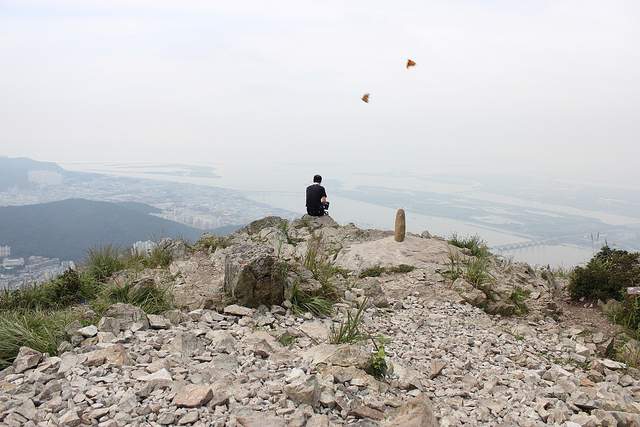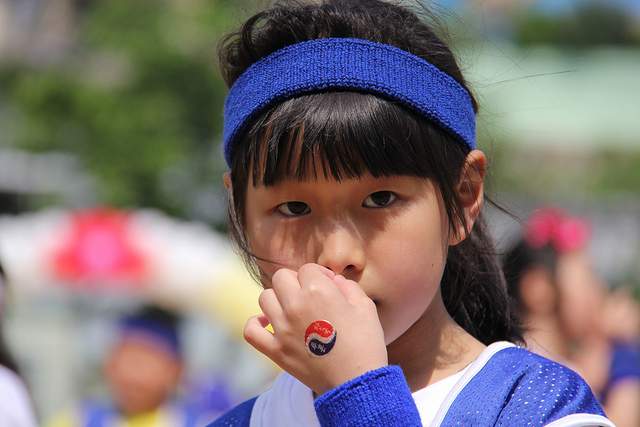In May 2011, I was sitting across from four editors in the startlingly modern private boardroom of the Chronicle Herald newspaper in west end Halifax, Nova Scotia. I’d prepared for this job interview all week. The Herald isn’t an especially well-regarded publication (it’s locally nicknamed “The Chronically Horrid”), but holds the distinction of being one of Canada’s oldest daily papers, and the largest of the nation’s few remaining independent ones. I would love to work there.
Beard trimmed and tie clip neatly in place, I played up my strengths and lied about my weaknesses for about 20 minutes. It was all very innocuous. Truth be told, I was happy enough just sitting there—as a 22-year-old journalism major on the cusp of graduation, a job straight out of school is considered the Holy Grail. J-schoolers are told often the tall tales of glorious predecessors who’ve moved on to full-time gigs at the Globe and Mail, Maclean’s, the CBC. This is what we believed we were working for. This was the goal.
As the interview wrapped up, one of my hypothetical employers brought up the topic of my other hypothetical futures. I replied candidly, but uncertainly: if I don’t get this job, actually, I might just move to South Korea and teach English.
The editor’s mouth twisted into an almost patronizing smile, and he wished me good luck.
Downstairs, I was showed to the door by the assistant newsroom editor, a hefty and serious man with a receding hairline and Italian name lifted from the cast of The Godfather. I asked him, out of curiosity, how he’d judge seeing “English Teacher in South Korea” on a resume. “It wouldn’t help,” he told me frankly, propping the door open. “But it wouldn’t hurt either. To be honest, you should probably just go. You’re young. Have fun.”
I inferred (correctly) from his parting words that the job wasn’t mine. The following week, for lack of any better autumn prospects, I emailed my teaching application.
From fantasy to reality

It took the entire summer—literally, because of a mid-season Canada Post strike, to receive my work visa express-mailed to me 24 hours before my flight to Seoul—to actually convince myself of the reality of this decision. I had spent those four hot, rainy months searching, actively looking for reasons to stay in Canada. I’d applied to a dozen full-time jobs and began dating a spritely, quasi-hipster girl attractively donned in colorful rings and scarves. By June, Korea was still 20% reality, 80% fantasy.
By July, 20% grew to 50%, then to 75% by early August. I’d snagged a few part-time jobs in writing and retail to pay rent, but my contracts and apartment lease were ending come fall, and my career prospects consisted of decidedly part-time jobs at Banana Republic and a radio station’s rush hour traffic desk. The girl and I had finished (she told me, quote: “I think friendship is the ship we’re on,” which is so good I couldn’t have made it up), and like too many of my peers, after the the rosy afterglow of grad week partying faded away, the prospect of a tangible future approached like a swift storm cloud. That “What now?” post-grad moment hit hard. I could well have moved back in with my parents, continued to work retail, freelance, save up, and move out. If nothing else, this is what my mother assumed I would do.
But I was, almost accidentally, 90% of the way to a Korean career. I had almost unconsciously completed the necessary tasks on deadline as a sort of summer hobby, the way one might take up knitting for a few months in hopes of one day working up to a pair of socks. I’d filled out the visa forms, paid hundreds in postage to South Korea and Ottawa, and nailed the Skype interview.
Suddenly, Korea seemed like the only option.
The aimlessness of twenty-something life

I can’t say exactly why I wanted to move to Korea. I knew nothing about the country, aside from having seen Oldboy and Anyong, the adopted son on Arrested Development.
In truth, the move began as a sort of joke among my group of similarly disenchanted Millennials, back in the middle of our fourth university year. One reads a depressing number of articles describing us twentysomethings as a “discouraged” generation, burdened by a dearth of jobs, skyrocketing tuition, and daunting national debt—yet we’re criticized for whining despite our privileged lifestyles. (To this stereotype’s credit, it’s all unfortunately true, and describes my university’s situation perfectly).
Given the amount my generations complains, or at least gets flak for complaining, about how few jobs there are, I was, and still am, seriously astonished at how few recent university graduates decide to travel straight out of college.
The whole time, I quietly maintained what I believe to be a very unsurprising urge not to join the mass of wannabe-writers scraping by on hundred-dollar freelance gigs and odd retail jobs. I didn’t want a life accurately lampooned on HBO’s Girls. Given the amount my generations complains, or at least gets flak for complaining, about how few jobs there are (referencing the self-perpetuating intern joke, “Entry-Level Position: 2+ Years Experience Required”), I was, and still am, seriously astonished at how few recent university graduates decide to travel straight out of college.
So it began as a joke. We decide, three friends and I, that if we remained as lost and helpless as we felt that winter, we would just up and move someplace come next fall. Who cares where? South Korea? Why not? As good as anywhere else. Operation Korea! We laughed about it and drank and promptly fell asleep.
Weeks peeled away, and I slowly realized that none of my friends were as serious about Operation Korea as I was. My friends all wanted to pay thousands more to grad schools, or else maintained romantic notions of freelance journalism—staying up odd hours, fedora askew atop dirtied shirt-sleeves, pen scribbling away in a black moleskin while ones eats tuna sandwiches on white bread every night in an involuntarily low-calorie diet. (It’s fair to digress briefly and note that a bunch of my fellow alumni actually did get jobs with decent paychecks straight out of uni, and significant parts of me are still deeply envious of their hefty bylines and skyrocketing number of Twitter followers. Seriously.)
My parents remained cautiously supportive of Operation Korea, mostly out of the pragmatic realization that they couldn’t really stop me. And indeed, up until the day I packed two large suitcases of mostly Banana Republic clothes, a Scrabble board, books by Woody Allen and David Foster Wallace, a toothbrush, and my MacBook, I didn’t really comprehend it myself. It all seemed so far away.
Looking at the contents of my bags, everything was drawn into focus. I immediately realized that I’d escaped one stereotype, the impoverished freelance reporter, only to fulfill another: the aimless twentysomething wanderer.
Rethinking home

I now understand that decisions are easier made when you’re almost too stupid to know better. The thought of having to learn another language, discover another set of cultural values, figure out food costs, find new friends, pack up my belongings and unpack them days later is exhausting in and of itself. It took all of autumn to settle into this new country, and though it was obviously a fun sort of adventure, by my first bitter, snowless winter here I remained convinced I’d be leaving as soon as was contractually allowed.
It took all of autumn to settle into this new country, and though it was obviously a fun sort of adventure, by my first bitter, snowless winter here I remained convinced I’d be leaving as soon as was contractually allowed.
But then spring came. There’s something about spring—something profoundly inspirational, beyond just the warm weather and longer days, which brings life to everything and everyone. People really are happier. Flowers bloom. In Korea, bright pink cherry blossoms sprout for two weeks every April, and everyone just wants to dance and picnic underneath them all day long.
So I decided to stay. A bunch of us here did. Everything just started to make sense: all the temples we hadn’t seen, the countries we hadn’t traveled to, the food we hadn’t eaten, the cherry blossoms we might never see again. I got cast in a play; I began getting published. I made my own roots. I forged a new home.
Now winter is upon us again, but I’m ready for it. By now, any time I spend a weekend away, I feel immeasurable relief to unlock my apartment door and just collapse on the couch. “Home” can be a transient thing; home is wherever you feel it.
Perhaps best of all, I’ve developed a premature sense of youthful invulnerability: I can live anywhere I goddamn please. Prague? Great coffee! Brunei? I love the coast! My mother informed me recently over Skype that, apparently, we have long-unseen Jewish diaspora family living in Uruguay. Uruguay, I think to myself. Spanish isn’t so hard to learn…
‘Home’ can be a transient thing; home is wherever you feel it.
So one year, predictably, turned to two, and so the snowball rolls. Sometimes I spot an email from my j-school alumni mailing list, tempting me with job openings: “Part-time work at CBC Manitoba,” “Global TV is hiring in Halifax,” and so on. I can almost see my peers’ eyes explode at the sight, as they race to collect LinkedIn references and write another cover letter with crossed fingers.
I’ll join them, too, one day. Until then, I think my journalism muscles can be plenty flexed tracking down long-lost Uruguayan cousins, thank you very much.
Read more inspirational travel stories and check out our resources for teaching abroad:
- From Corporate Tool to Nomadic Idealist
- Escape the Rat Race
- Confessions of a Lifestyle Traveler
- Getting Your Boots Dirty: How Volunteering in Africa Changed Me
- Travel Made me Who I Am Today
- Why You Should Forgo the American Dream and Let Travel Transform Your Life
- Getting Outside The Box: One Family’s Journey to Full Time Travel
- Read Work Overseas: Teaching English Abroad
- Read Teach English in Asia in Five Simple Steps
Photo credits: Paul Fundenburg, all other photos courtesy of the author and may not be used without permission.
